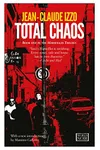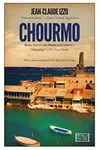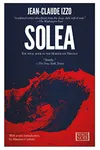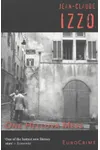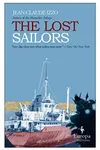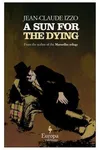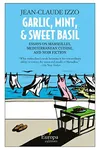Picture a French storyteller who turned the gritty streets of Marseille into a vivid canvas of crime and culture—meet Jean-Claude Izzo! Born in 1945, this poet-turned-novelist captured the soul of his beloved city with his Marseilles Trilogy, blending noir thrills with heartfelt social commentary. His lyrical tales of ex-cop Fabio Montale redefined Mediterranean noir, making Izzo a literary legend.
Izzo’s stories aren’t just mysteries; they’re love letters to Marseille’s multicultural heartbeat, weaving tales of immigrants, mafia, and music under the Mediterranean sun. Ready to dive into his world? Let’s explore the man who made noir sing.
The Making of Jean-Claude Izzo
Born in Marseille to an Italian father and Spanish mother, Jean-Claude Izzo grew up in the city’s vibrant, working-class neighborhoods. His immigrant roots shaped his empathy for the marginalized, a theme that pulses through his work. After excelling in school, he was steered into a technical trade due to his background, but his heart belonged to stories. By his teens, he was scribbling poems and dreaming big.
Izzo’s early career was eclectic—journalist, bookseller, and Communist Party member, he even served in the French army in Djibouti. Disillusioned by politics, he turned to writing, publishing poetry in the 1970s before discovering American crime thrillers. At 50, he burst onto the scene with his debut novel, launching a career that would captivate readers worldwide.
Jean-Claude Izzo’s Unforgettable Stories
Izzo’s Marseilles Trilogy—Total Chaos (1995), Chourmo (1996), and Solea (1998)—is his crowning achievement. These neo-noir novels follow Fabio Montale, a disillusioned ex-cop navigating Marseille’s underworld. Total Chaos introduces Montale as he investigates the murders of childhood friends, uncovering police corruption and mafia ties. Chourmo deepens the saga, tackling immigration and youth violence, while Solea delivers a heart-wrenching finale as Montale battles organized crime.
Beyond the trilogy, Izzo’s standalone works shine. The Lost Sailors (1997) explores joblessness among stranded seamen, while A Sun for the Dying (1999) follows a homeless man’s quest for redemption. Izzo’s style is gritty yet poetic, blending hard-boiled dialogue with lush descriptions of Marseille’s sea, food, and music—think jazz, rap, and rai. His themes of multiculturalism, injustice, and human resilience resonate deeply, earning him a cult following.
Izzo didn’t just write crime fiction; he crafted a new genre. His Mediterranean noir fuses existential angst with social critique, painting Marseille as a microcosm of global struggles. His vivid settings and flawed, relatable characters make every page pulse with life.
Why Jean-Claude Izzo Matters
Jean-Claude Izzo’s work transcends crime fiction, offering a raw, compassionate lens on multiculturalism and urban life. His Marseilles Trilogy sparked the Mediterranean noir movement, inspiring authors like Andrea Camilleri and Massimo Carlotto. By centering immigrants and the disenfranchised, Izzo challenged France’s social narrative, foreshadowing tensions like the 2005 race riots. His lyrical prose and unflinching honesty continue to captivate readers, cementing his legacy as a voice for the voiceless.
Though Izzo died of cancer in 2000 at 54, his stories remain timeless. Fans still flock to Marseille, tracing Montale’s steps through Le Panier or savoring pastis by the port, hoping to feel the magic of his world. His work reminds us that even in darkness, there’s beauty in solidarity and hope.
- Born: June 20, 1945, Marseille, France
- Key Works: Marseilles Trilogy (Total Chaos, Chourmo, Solea), Garlic, Mint, and Sweet Basil
- Awards: Prix Sang d’encre for Chourmo, Deutscher Krimi Preis (2001)
- Died: January 26, 2000
About Jean-Claude Izzo
Snag Total Chaos and dive into Jean-Claude Izzo’s sultry, soulful Mediterranean noir—you’ll be hooked!
